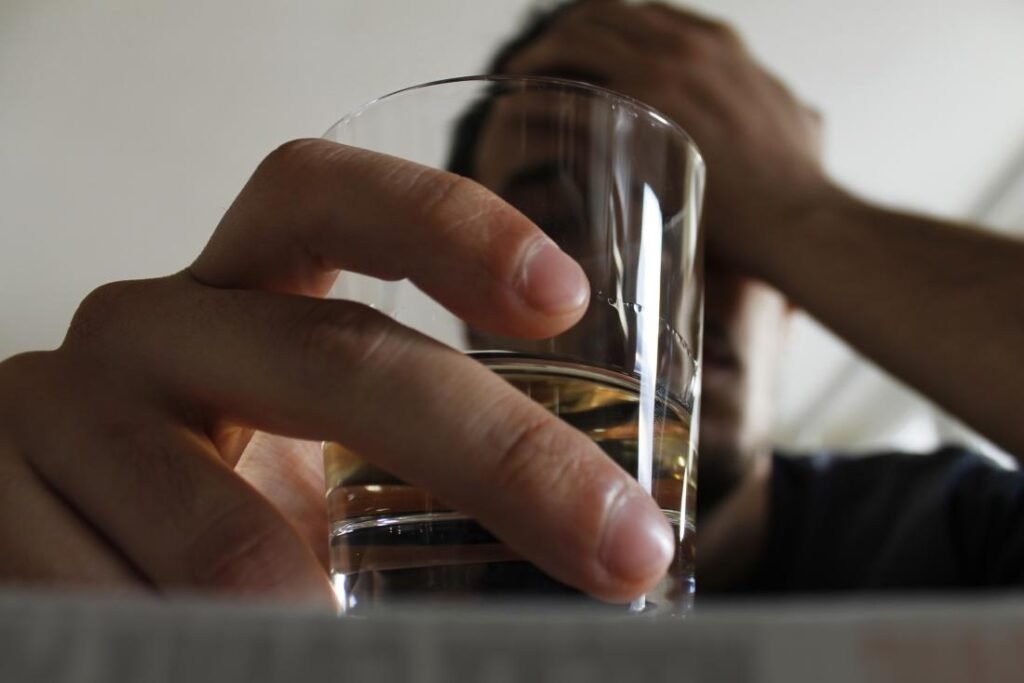Introduction
Binge drinking is often seen as a social activity that brings immediate pleasure, whether it’s at a party, a night out with friends, or a celebration. However, the short-term enjoyment that comes from binge drinking can quickly give way to long-term consequences that affect both physical and mental health. Understanding the risks associated with binge drinking is crucial for making informed decisions about alcohol consumption. This article explores the effects of binge drinking, highlighting the immediate pleasures and the potential long-term consequences.
What is Binge Drinking?
Definition and Prevalence
Binge drinking is defined as consuming a large amount of alcohol in a short period, typically leading to a blood alcohol concentration (BAC) of 0.08% or higher. For men, this usually means consuming five or more drinks in about two hours, and for women, four or more drinks in the same timeframe. According to the Centers for Disease Control and Prevention (CDC), one in six adults in the United States binge drinks approximately four times a month, consuming about seven drinks per binge.
Social and Cultural Factors
Binge drinking is often encouraged in social settings, where drinking large amounts of alcohol is normalized or even celebrated. Peer pressure, social expectations, and the desire to “let loose” can all contribute to the prevalence of binge drinking, particularly among young adults and college students.
Short-Term Effects of Binge Drinking
Immediate Pleasure and Euphoria
One of the main reasons people engage in binge drinking is the immediate pleasure and euphoria that alcohol can provide. Alcohol acts as a depressant on the central nervous system, which can reduce inhibitions, increase sociability, and create a sense of relaxation and happiness. This can make social interactions feel more enjoyable and help people feel more confident.
Impaired Judgment and Coordination
Despite the initial feelings of euphoria, binge drinking quickly impairs judgment and coordination. This can lead to risky behaviors, such as driving under the influence, unprotected sex, or getting into physical altercations. The National Institute on Alcohol Abuse and Alcoholism (NIAAA) reports that alcohol is a factor in about 60% of fatal burn injuries, drownings, and homicides, as well as 40% of fatal falls and car accidents.
Alcohol Poisoning and Overdose
One of the most dangerous short-term effects of binge drinking is alcohol poisoning, which occurs when the body is overwhelmed by the amount of alcohol consumed. Symptoms of alcohol poisoning include confusion, vomiting, seizures, slow or irregular breathing, and unconsciousness. Without prompt medical attention, alcohol poisoning can be fatal. The CDC estimates that about 2,200 people in the United States die each year from alcohol poisoning.
Long-Term Consequences of Binge Drinking
Physical Health Risks
While the short-term effects of binge drinking are alarming, the long-term consequences can be even more damaging. Regular binge drinking can lead to a range of chronic health issues, including:
– Liver Disease: Heavy alcohol consumption can cause liver inflammation, leading to conditions like fatty liver, hepatitis, and cirrhosis.
– Cardiovascular Problems: Binge drinking can increase blood pressure and lead to heart disease, stroke, and arrhythmias.
– Gastrointestinal Issues: Excessive alcohol use can cause gastritis, ulcers, and an increased risk of pancreatic inflammation.
Mental Health Impacts
Binge drinking is also closely linked to mental health issues. While alcohol may temporarily relieve feelings of anxiety or depression, it often exacerbates these conditions in the long term. The Substance Abuse and Mental Health Services Administration (SAMHSA) notes that individuals who engage in binge drinking are more likely to experience depression, anxiety, and other mood disorders.
Addiction and Dependence
Repeated episodes of binge drinking can lead to alcohol dependence and addiction. The NIAAA highlights that individuals who binge drink frequently are at a higher risk of developing alcohol use disorder (AUD), a chronic condition characterized by an inability to control alcohol consumption despite negative consequences. AUD can have devastating effects on an individual’s life, including strained relationships, job loss, and legal issues.
Social and Legal Consequences
Binge drinking can also lead to significant social and legal consequences. Legal issues such as DUI charges, public intoxication, or alcohol-related accidents can result in fines, imprisonment, or a criminal record. Socially, binge drinking can damage relationships with friends, family, and colleagues, leading to isolation and loneliness.
Strategies for Reducing Binge Drinking
Education and Awareness
Raising awareness about the dangers of binge drinking is crucial for prevention. Public health campaigns, educational programs, and community initiatives can help inform individuals about the risks associated with excessive alcohol consumption and encourage healthier behaviors.
Seeking Support and Treatment
For those struggling with binge drinking, seeking support is essential. Counseling, therapy, and support groups can provide individuals with the tools they need to manage their alcohol consumption and address underlying issues that may contribute to binge drinking. According to SAMHSA, early intervention and treatment can significantly improve outcomes for individuals with alcohol use disorders.
Setting Personal Limits
Individuals can also take steps to reduce their risk of binge drinking by setting personal limits on alcohol consumption. This might include pacing drinks, alternating alcoholic beverages with water, and avoiding situations where heavy drinking is encouraged. Being mindful of drinking habits can help prevent binge drinking and its associated risks.
Conclusion
While binge drinking may offer short-term pleasure, the long-term consequences can be severe and far-reaching. From physical health risks to mental health impacts, addiction, and legal troubles, the dangers of binge drinking are numerous and significant. By understanding these risks and taking proactive steps to reduce binge drinking, individuals can protect their health and well-being, leading to a more balanced and fulfilling life.
Read More About The Effects of Binge Drinking Short-Term Pleasure, Long-Term Consequences
References
1. Centers for Disease Control and Prevention. (2020). Binge Drinking. Retrieved from [CDC](https://www.cdc.gov/alcohol/fact-sheets/binge-drinking.htm)
2. National Institute on Alcohol Abuse and Alcoholism. (2018). Alcohol’s Effects on the Body. Retrieved from [NIAAA](https://www.niaaa.nih.gov/alcohols-effects-health/alcohols-effects-body)
3. Substance Abuse and Mental Health Services Administration. (2019). The Mental Health Impact of Binge Drinking. Retrieved from [SAMHSA](https://www.samhsa.gov/)
4. World Health Organization. (2014). Global status report on alcohol and health. Retrieved from [WHO](https://www.who.int/publications/i/item/global-status-report-on-alcohol-and-health-2014)
